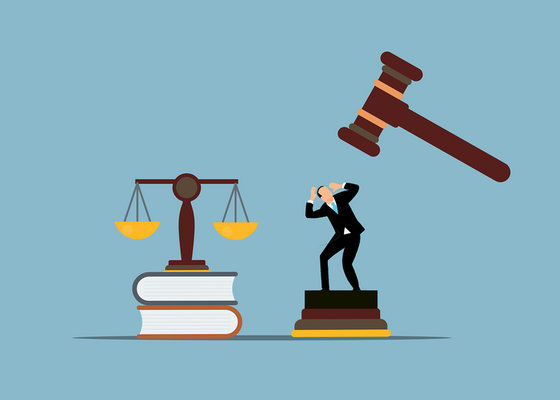- Attorney-Lawyer.esq
- Blog
- Common Legal Myths Debunked
Common Legal Myths Debunked

In the world of law, there are many common myths that people believe to be true. These misconceptions can lead to legal trouble and consequences if not addressed properly. In this article, we will debunk some of the most common legal myths to help you navigate the legal landscape more effectively.
## Common Legal Myths Debunked: An Overview
Myth #1: "If It's on the Internet, It's Public Domain"
Many people believe that anything found on the internet is free for public use. However, this is not true. Just because something is accessible online does not mean it is in the public domain. Copyright laws still apply to online content, and using someone else's work without permission can lead to copyright infringement.
Myth #2: "I Can Use Any Image as Long as I Credit the Source"
While giving credit to the source of an image is important, it does not automatically grant you the right to use it. You must obtain permission from the copyright holder before using any image, even if you provide attribution. Failure to do so can result in legal action for copyright infringement.
Myth #3: "Verbal Agreements Hold the Same Weight as Written Contracts"
Verbal agreements are legally binding in many cases, but they can be difficult to enforce without written documentation. Written contracts provide clarity and protection for all parties involved, making them a more reliable form of agreement. It is always best to have important agreements in writing to avoid misunderstandings and legal disputes.
Myth #4: "I Can't Be Sued if I'm Not Making a Profit"
Whether or not you are making a profit does not determine your liability for legal issues. If you are infringing on someone else's rights or breaking the law in any way, you can still be sued, regardless of your financial gain. It is important to understand and follow the law to avoid legal consequences.
Myth #5: "I Can Copy a Small Portion of Someone Else's Work"
Many people believe that using a small portion of someone else's work is acceptable under the fair use doctrine. While fair use allows for limited use of copyrighted material for purposes such as criticism, commentary, or education, it is a complex legal concept that requires careful consideration. Simply copying a small portion of someone else's work may still constitute copyright infringement.
Myth #6: "I Can't Be Held Liable for What I Post Online"
Posting content online does not exempt you from legal responsibility. Defamation, copyright infringement, and other legal issues can arise from online posts, and you can be held liable for any harm caused by your online activities. It is important to be mindful of what you post online and understand the potential legal consequences.
Myth #7: "I Don't Need a Lawyer for Small Legal Matters"
While some legal matters may seem minor, it is always advisable to seek legal advice when dealing with any legal issue. A lawyer can provide guidance, protect your rights, and help you navigate the complexities of the legal system. Ignoring legal matters, no matter how small, can lead to bigger problems down the road.
Myth #8: "I Can't Be Sued if I Didn't Intend to Infringe"
Intent is not always a defense in legal matters. Ignorance of the law or lack of intent to infringe does not excuse illegal actions. It is important to educate yourself on the law and seek legal advice when needed to avoid unintentional legal violations.
Myth #9: "I Can Use a Disclaimer to Avoid Legal Consequences"
While disclaimers can provide some level of protection, they are not a foolproof way to avoid legal consequences. Disclaimers are not a substitute for following the law and can be challenged in court. It is important to comply with legal requirements and seek legal advice when creating disclaimers to ensure they are effective.
Myth #10: "I Can't Be Sued if I'm Just Sharing Information"
Sharing information does not exempt you from legal liability. If the information you share is defamatory, infringes on someone else's rights, or violates the law in any way, you can still be held accountable. It is important to be cautious about the information you share and ensure it is accurate and legal.
By debunking these common legal myths, we hope to help you better understand the legal landscape and avoid potential legal pitfalls. It is important to educate yourself on the law, seek legal advice when needed, and always act in accordance with legal requirements to protect yourself and others from legal consequences. Remember, when in doubt, consult a legal professional to ensure you are on the right side of the law.




